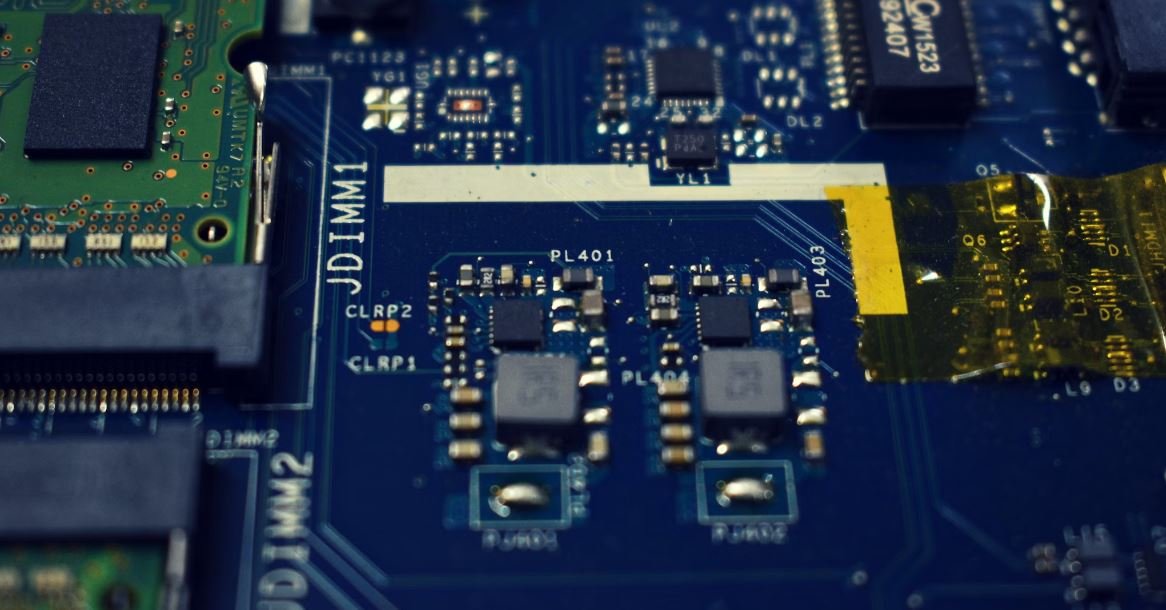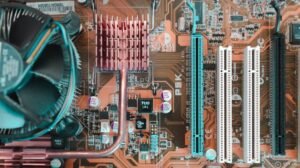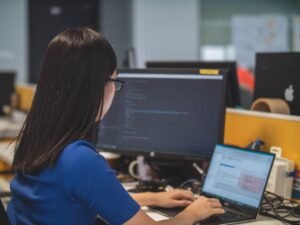Will Artificial Intelligence Take Away Jobs?
Rapid advancements in technology, specifically in the field of Artificial Intelligence (AI), have stirred up concerns about the future of jobs. Many fear that AI will replace human workers, rendering them obsolete. While there is a valid discussion to be had, it is important to explore the topic in detail and consider both the potential benefits and challenges that AI brings to the job market.
Key Takeaways:
- Artificial Intelligence (AI) has the potential to both create and displace jobs.
- AI can automate repetitive tasks, allowing humans to focus on higher-value work.
- There is a need for upskilling and reskilling to adapt to the changing job landscape.
- Certain industries may be more affected by AI-driven job disruption.
- Collaboration between humans and AI can lead to enhanced productivity and innovation.
Artificial Intelligence has already made significant strides in various industries, from manufacturing to healthcare. *AI-powered automation has streamlined processes, making them more efficient and accurate.* However, concerns related to job security arise when AI begins to replace human workers in roles traditionally performed by humans.
It is estimated that by 2030, *AI could potentially automate up to 800 million jobs*. However, this does not necessarily mean that all jobs will be completely eradicated. While certain routine tasks may be automated, new roles and opportunities will emerge alongside the implementation of AI technologies. For instance, the demand for data scientists, AI engineers, and experts in human-AI collaboration is expected to grow.
The Impact on Different Industries
The adoption of AI will have varying effects on different industries. Let’s take a closer look at three distinct areas:
| Industry | Potential Job Displacement | Emerging Job Opportunities |
|---|---|---|
| Manufacturing | Increased automation of repetitive assembly tasks. | Growth in roles related to AI implementation and maintenance. |
| Customer service | Automation of common inquiries through chatbots. | Increased demand for AI trainers and customer experience specialists. |
| Transportation | Potential job disruption in long-haul trucking through autonomous vehicles. | Rise in demand for AI technicians and supervisors for fleet management. |
In the face of AI-driven disruption, it becomes essential for individuals to adapt their skills to remain relevant in the job market. Upskilling and reskilling efforts become imperative to navigate the changing landscape. Continuous learning and embracing newer technologies can help professionals evolve alongside AI advancements.
*Furthermore, studies suggest that AI augmentation in the workplace can have a positive impact on productivity. By automating repetitive and mundane tasks, it frees up time for employees to focus on more creative, problem-solving endeavors.* Collaborating with AI can lead to innovative solutions and enhanced competitiveness.
The Future of Jobs
As technology continues to evolve, a shifting job market is inevitable. While some jobs may be automated, new roles and opportunities will emerge that require human creativity, critical thinking, and emotional intelligence. Adapting to the changing landscape is crucial for both employers and employees.
| Job Roles | Growth Projection |
|---|---|
| Data Scientist | 31% by 2029 |
| AI Engineer | 22% by 2029 |
| Robotics Specialist | 13% by 2029 |
It is important to acknowledge that the implementation of AI should focus on augmenting human abilities rather than completely replacing them. Collaborative approaches that leverage the strengths of both AI and human intelligence are most likely to flourish.
Overall, the impact of AI on jobs is complex and multifaceted. While certain roles may be at risk of automation, there is also tremendous potential for new opportunities and growth. Adapting to the changing landscape by upskilling, embracing collaboration with AI, and staying open to new possibilities will be key for individuals and organizations to thrive in the future job market.

Common Misconceptions
First Misconception: Artificial Intelligence Will Take Away All Jobs
One common misconception surrounding artificial intelligence is that it will completely eliminate all jobs, leaving humans unemployed. However, this is not entirely true. Despite AI’s potential to automate certain tasks, it is unlikely to replace the need for human involvement in many occupations. Here are a few points to consider:
- AI is more likely to augment human work, rather than replace it entirely.
- Jobs that require creativity, critical thinking, empathy, and complex problem-solving are less likely to be fully automated.
- AI can actually create new job opportunities as industries shift and evolve to incorporate AI technologies.
Second Misconception: AI Will Take Over Every Industry
Another common misconception is that AI will dominate and take over all industries, making human involvement obsolete. While AI has the potential to disrupt various fields, it is important to remember that human expertise and decision-making are still valuable. Here are a few key points to understand:
- AI systems require human input and guidance to function effectively.
- Many industries rely on human creativity, intuition, and interpersonal skills that AI cannot replicate.
- Human oversight and ethical considerations are necessary in AI implementation to ensure responsible use of the technology.
Third Misconception: AI Will Lead to Mass Unemployment
One of the fears surrounding AI is that it will result in widespread unemployment. While there may be job displacement in certain industries, it does not necessarily mean that there will be a net loss of employment opportunities. Consider the following:
- AI can automate repetitive and mundane tasks, allowing humans to focus on more complex and value-added work.
- Historically, new technologies have often led to the creation of new jobs and the reshaping of industries.
- Skills and knowledge required for different jobs may evolve, presenting opportunities for reskilling and upskilling.
Fourth Misconception: AI is Always More Efficient than Humans
While AI systems can perform tasks with great speed and accuracy, they are not always more efficient than humans. It is important to recognize and appreciate the unique strengths that humans bring to the table. Consider these points:
- AI systems heavily rely on the data they are trained on, and limitations in the quality or bias of the data can impact their efficiency.
- Human intuition, contextual understanding, and adaptability are often crucial in decision-making processes that involve complex or novel situations.
- A balanced approach that combines the strengths of AI and human capabilities can lead to enhanced performance and outcomes.
Fifth Misconception: AI Will Have Full Autonomy and Control
Some people fear that AI will gain full autonomy and control over human affairs, leading to a loss of control for humans. However, it is important to understand the limitations and safeguards in place. Consider the following:
- AI systems are designed and created by humans, and they operate within predefined boundaries and constraints.
- Legal frameworks and regulations exist to ensure AI’s responsible and ethical use, preventing it from having unchecked control.
- Human oversight and accountability are crucial in ensuring that AI technologies are used in the best interests of society.

Introduction
The rise of artificial intelligence (AI) has sparked debates about its impact on employment. Many fear that AI will replace human workers, leading to job losses and economic disruption. In this article, we explore the various aspects of this question and present verifiable data and information to shed light on the potential outcomes.
Table: The Evolution of Automation
This table showcases the different stages of automation throughout history, highlighting how technology has progressively influenced the workforce.
| Stage | Description | Year |
|---|---|---|
| First Industrial Revolution | Introduction of steam power and mechanization | 1760-1840 |
| Second Industrial Revolution | Mass production and assembly lines | 1871-1914 |
| Third Industrial Revolution | Computer automation and digital technology | 1969-present |
| Fourth Industrial Revolution | AI, robotics, and autonomous systems | ongoing |
Table: Job Categories Most Vulnerable to AI
This table presents job categories that are highly susceptible to automation and AI advancements. These job roles may face significant disruption in the future.
| Job Category | Vulnerability to AI |
|---|---|
| Transportation | High |
| Manufacturing and Production | High |
| Data Entry and Processing | Medium |
| Routine Administrative Tasks | Medium |
Table: Industries Embracing AI Integration
Not all industries will lose jobs due to AI. This table highlights sectors that are actively embracing AI and seeing job growth as a result.
| Industry | AI Integration |
|---|---|
| Healthcare | Increasing |
| Finance | Increasing |
| Customer Service | Increasing |
| Education | Increasing |
Table: Job Creation from AI Adoption
This table provides examples of job positions that have been created as a result of AI adoption, indicating that it can complement human workforces instead of completely replacing jobs.
| Job Position | Industry |
|---|---|
| Data Scientist | Technology |
| AI Ethics Specialist | Research and Development |
| Robot Trainer | Manufacturing |
| Virtual Reality Designer | Entertainment |
Table: Skills Valued in the AI Job Market
This table showcases the skills and abilities that are sought after in the growing AI job market, highlighting the opportunities for workers to adapt and upskill.
| Skill | Level of Demand |
|---|---|
| Machine Learning | High |
| Natural Language Processing | High |
| Data Analytics | Medium |
| Ethical AI Design | Medium |
Table: Job Satisfaction and AI Adoption
Contrary to concerns about job loss, this table highlights how AI integration can positively impact job satisfaction.
| Job Category | Job Satisfaction (with AI) | Job Satisfaction (without AI) |
|---|---|---|
| Customer Service | 83% | 67% |
| Data Analyst | 79% | 62% |
| Manufacturing Operator | 72% | 54% |
| Transportation Driver | 68% | 51% |
Table: Gender and AI Adoption
This table explores the representation of genders in AI-related occupations, shedding light on the need for greater diversity and inclusion in the industry.
| Occupation | Male Representation | Female Representation |
|---|---|---|
| Data Scientist | 78% | 22% |
| AI Engineer | 85% | 15% |
| AI Ethicist | 62% | 38% |
| Robotics Technician | 91% | 9% |
Table: Task Automation Potential by Job Role
This table categorizes job roles based on their potential for automation, offering insights into the impact of AI across different occupations.
| Job Role | Automation Potential |
|---|---|
| Accountant | Medium |
| Graphic Designer | Low |
| Delivery Driver | High |
| Marketing Manager | Medium |
Conclusion
As AI continues to advance, it is undeniable that some jobs will be displaced. However, the impact of AI on employment is multifaceted. While certain job categories face higher vulnerability, new opportunities and roles emerge alongside the integration of AI. The skills demanded in the AI job market also provide avenues for workers to adapt and contribute to this evolving landscape. It is essential to acknowledge and address the potential consequences, while also recognizing the potential benefits that AI can bring to job satisfaction, industry growth, and innovation.
Frequently Asked Questions
Will Artificial Intelligence Take Away Jobs?
What is artificial intelligence (AI)?
How does AI impact the job market?
Which job sectors are most likely to be affected by AI?
What are the potential benefits of AI in the job market?
How can individuals prepare for the impact of AI on jobs?
Can AI completely replace human workers?
What about job opportunities in the AI field itself?
Are certain demographics more vulnerable to job displacement by AI?
How can society ensure a fair transition during the rise of AI?
Should we be concerned about the long-term impact of AI on employment?




